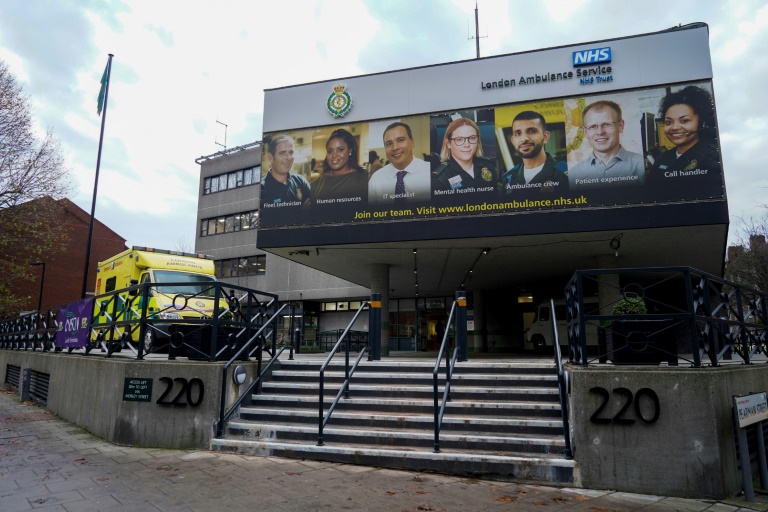After a day’s work for the nurses, British ambulance workers went on strike on Wednesday to demand better pay from the government, which accused them of “intentionally” harming patients.
The country’s social protest movement is expanding in the face of inflation above 10% and rising tensions with a conservative government that refuses to discuss salary improvements, which it deems “unapproachable”.
The malaise spreads across multiple sectors: nursing, railways, logistics, customs police, post office…
But the ambulance strike has put particular pressure on the government because of the risks it poses to people in need of urgent care.
And in The Daily Telegraph, Health Secretary Steve Barclay accused the unions of having “deliberately decided to hurt patients”.
Rachel Harrison, general secretary of the GMB, replied: “This is a really insulting statement to ambulance staff and NHS staff.”
About 750 military personnel have been trained to replace ambulance workers.
However, NHS England medical director Stephen Boyce asked the BBC that residents drank alcohol in moderation because it was going to be “a very difficult day for the health service”.
“We have been working closely with unions to ensure emergency services continue for life-threatening illnesses, including stroke and heart attack,” he said.
Strike sit-ins appeared in different parts of the country on Wednesday morning. In southwest London, protesters carried banners reading “Save the NHS”.
The GMB general secretary said it was “up to the government to put an end to this conflict now”.
“By refusing to discuss wages with the unions, it is the government that decides to pursue the dispute,” Harrison said.
– The alarm –

This strike is happening day after day by the nurses, who had already called a strike last week.
On Tuesday night, the Royal College of Nursing union sent the government an ultimatum giving it two days to reach an agreement on wages or threaten new strikes after Christmas.
The group, which went on strike for the first time in the 100 years of the union’s existence, has become a symbol of the rising cost of living.
Prime Minister Rishi Sunak remained adamant on Tuesday with the chairs of parliamentary committees.
“I know it’s hard. It’s hard for everyone because inflation is where it is,” he said.
“The best way (…) to help everyone in the country is to get our batteries together and reduce inflation as quickly as possible,” he said.
However, professionals in the health sector enjoy broad support among the population having been at the forefront of the fight against the coronavirus.
In addition, they suffer from budget austerity that has burdened a respectable and free public health system for years.
According to a YouGov survey published on Tuesday, two-thirds of Britons support strikes by nurses and 63% support ambulance staff.
ctx/gmo/dbh/zm


:quality(85)/cloudfront-us-east-1.images.arcpublishing.com/infobae/Z37LYF6XRBG2NNAUPY4UDADIGU.jpg)

:format(webp)/cloudfront-us-east-1.images.arcpublishing.com/grupoclarin/JSHVMTN6OFCVDAOANUVZNYKY3Q.jfif)
